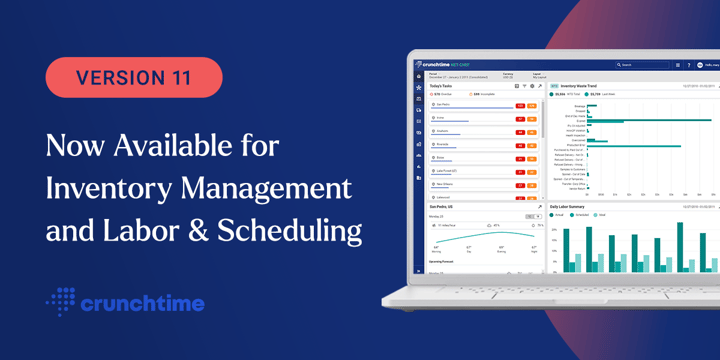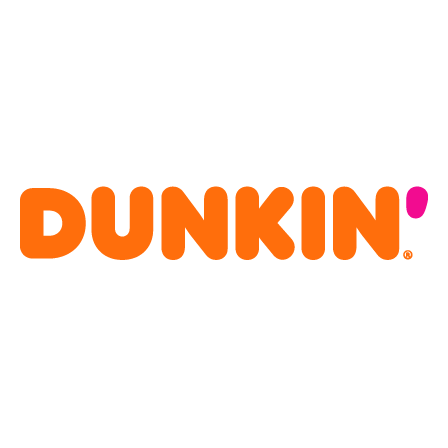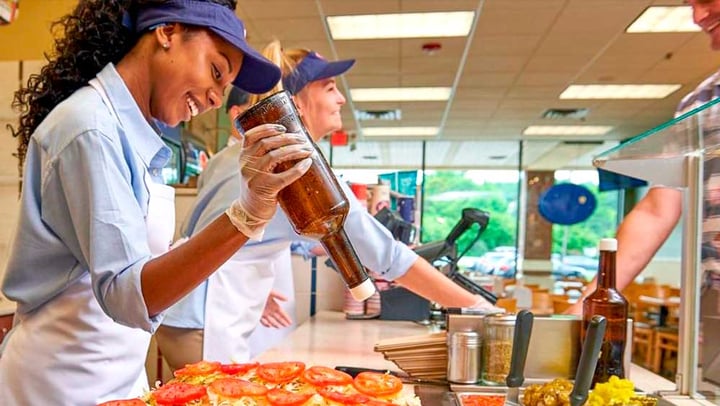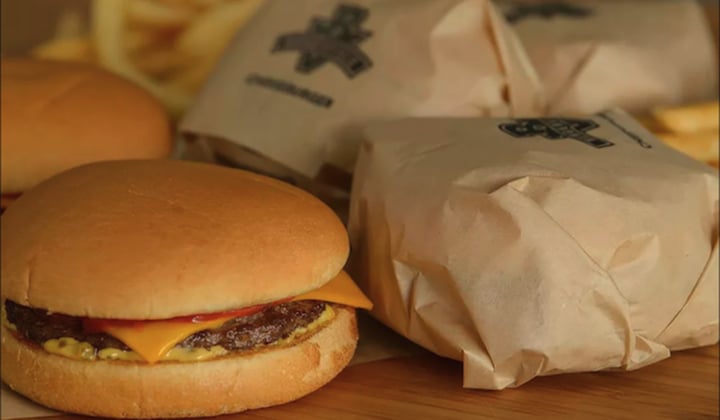
- Home
- Crunchtime Blog
- How Dunkin’ Creates Schedules in Half the Time Across its Vast Franchise Network

How Dunkin’ Creates Schedules in Half the Time Across its Vast Franchise Network
America may run on Dunkin’, but behind the scenes, Dunkin’ runs on precision, passion, and a drive to keep millions of customers fueled every single day. Being the largest coffee and donuts brand in the US, it’s critical for teams in every store to maintain brand consistency and operational efficiency.
But, when the disadvantages of using traditional scheduling methods continued to hinder employee engagement and teamwork in stores, the brand decided to transition to an automated scheduling platform.

At Crunchtime’s Ops Summit 2024, Peter McDonough, Senior Product Manager at Dunkin’, shared valuable insights about implementing Crunchtime’s labor and scheduling tool, Teamworx, across Dunkin’s extensive franchise network with thousands of locations.
As a 100% franchised organization, Dunkin' faces unique challenges when implementing new systems. “Everything was always evolving. So it's really tricky with such a big network to evolve with everybody,” McDonough emphasized during the session.
So Dunkin’ needed a labor and scheduling tool that was proven to drive efficiency and employee satisfaction. McDonough added, “We have to simplify as best as possible. It's got to be self-serve. It has to be as smooth and simple as possible."
McDonough shared three key insights into the company’s approach. First, Dunkin’ focuses on demonstrating value to franchisees rather than mandating changes, emphasizing the time-saving benefits and operational improvements that Teamworx can deliver.
Next, the company has developed a sophisticated scheduling template system that accommodates different store formats. One example of these unique store formats is combo stores, where Dunkin’ will have a location that has two separate brands operating out of the same building. They've created specialized templates for traditional stores, non-traditional locations (such as gas stations), and alternative points of distribution (APODs), each tailored to specific operational needs and staffing requirements.
Thirdly, Dunkin' has taken a measured approach to mobile device usage in stores, balancing operational necessity with professional standards. Since Teamworx is the employee scheduling app, managers require mobile access for essential functions. The company has implemented clear guidelines about when and where devices can be used, particularly in customer-facing areas.
The results from this 3-step approach were extremely positive. With Crunchtime, Dunkin’s schedule creation time was reduced by 50%.
McDonough explained, ”We cut our time to create a schedule in half. Sales forecast, easy to create. Happens quickly. The ability to create a schedule is much faster. Much easier for the restaurants to submit it for approval. The area managers can review it, and it's easy for them to check all their locations in one application rather than what they were doing before that. So there were a lot of efficiency gains, from that standpoint."
Key Takeaways
- Sometimes, a persuasion-based approach to system implementation is more effective for franchise networks than mandatory adoption.
- Template diversification is crucial for accommodating different store formats and operational needs.
- Clear mobile device policies help balance operational efficiency with professional standards.
Dunkin's implementation of Teamworx demonstrates how a major franchise organization can successfully roll out enterprise-wide systems while respecting franchisee autonomy. This approach balances standardization with flexibility, allowing for consistent operations across diverse location types while maintaining brand standards. By focusing on demonstrable benefits and simplified processes, Dunkin' has created a model for large-scale system implementation from which other franchise organizations can learn, while also improving oversight capabilities for area managers.
Click here to learn more about Crunchtime for labor and scheduling.
Share this post
Related


3 Key Tips for Rolling Out & Driving Adoption of a New Labor Scheduling Solution in Restaurants


